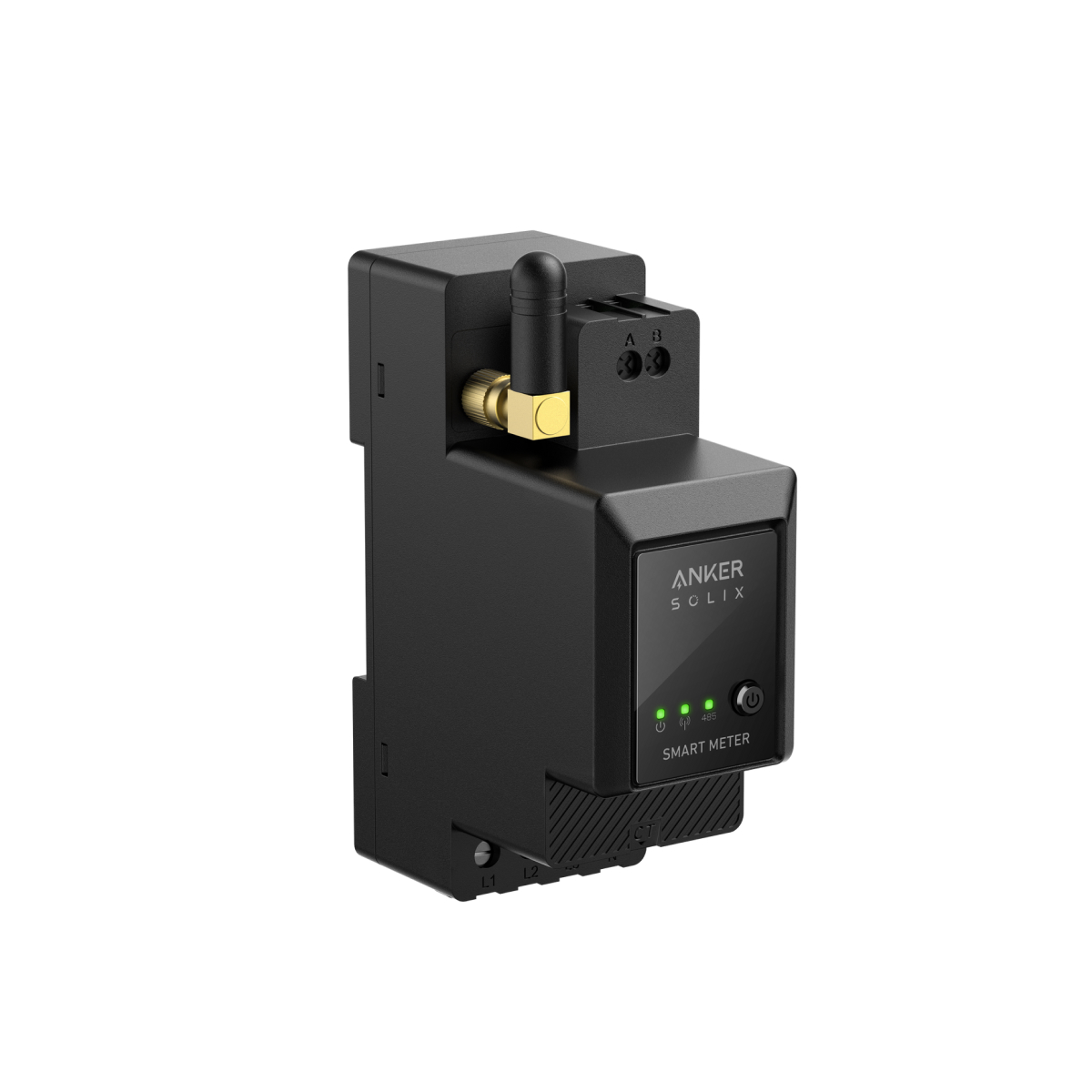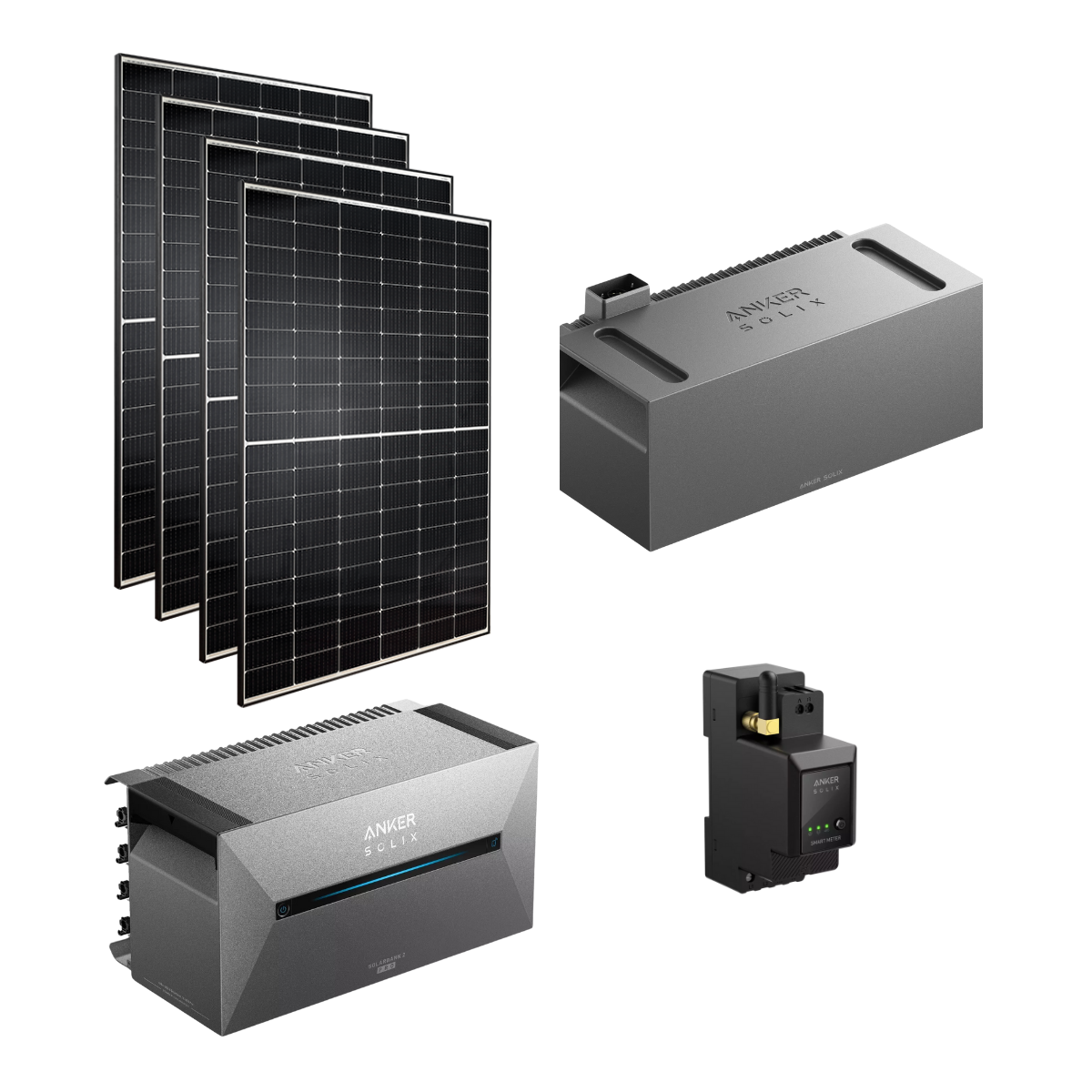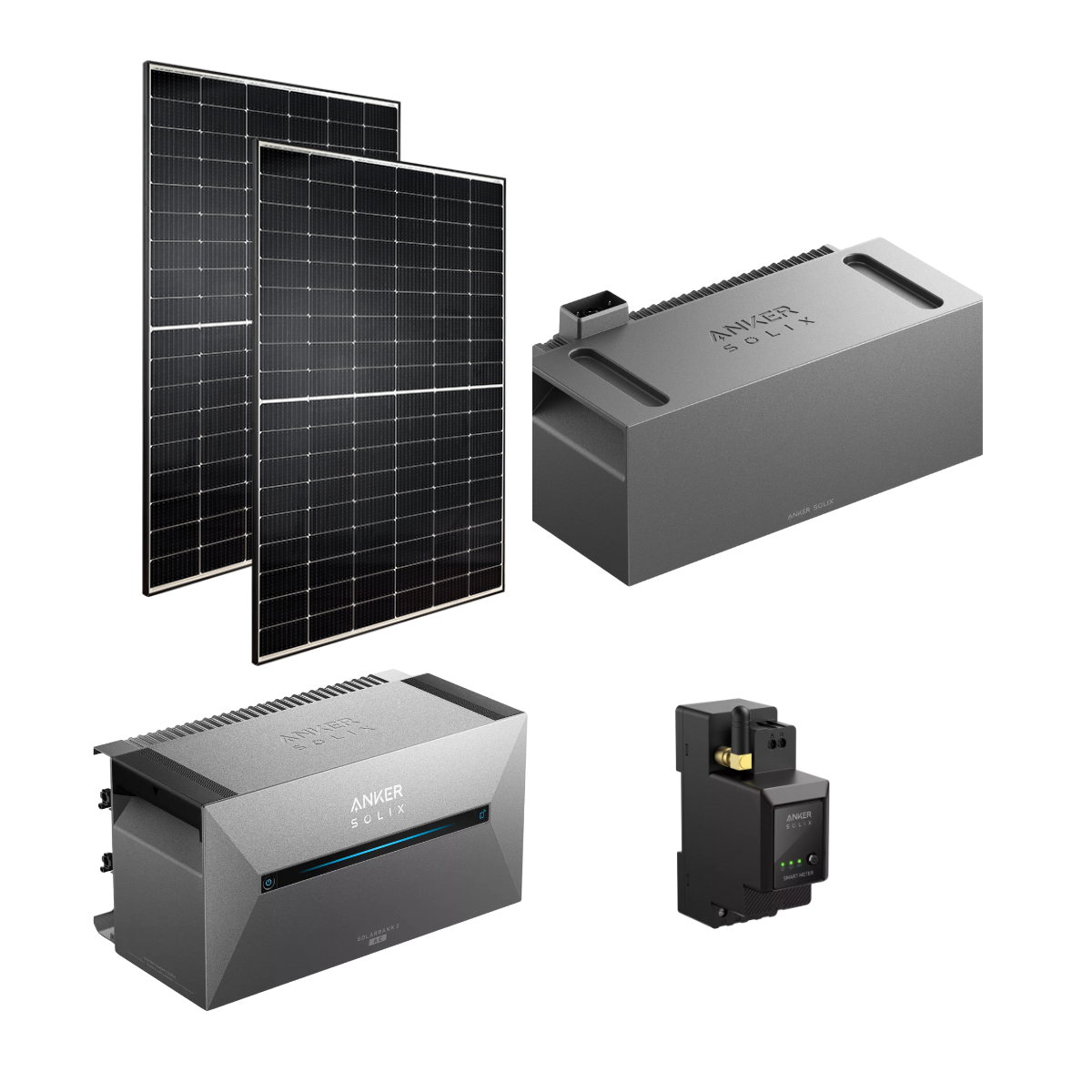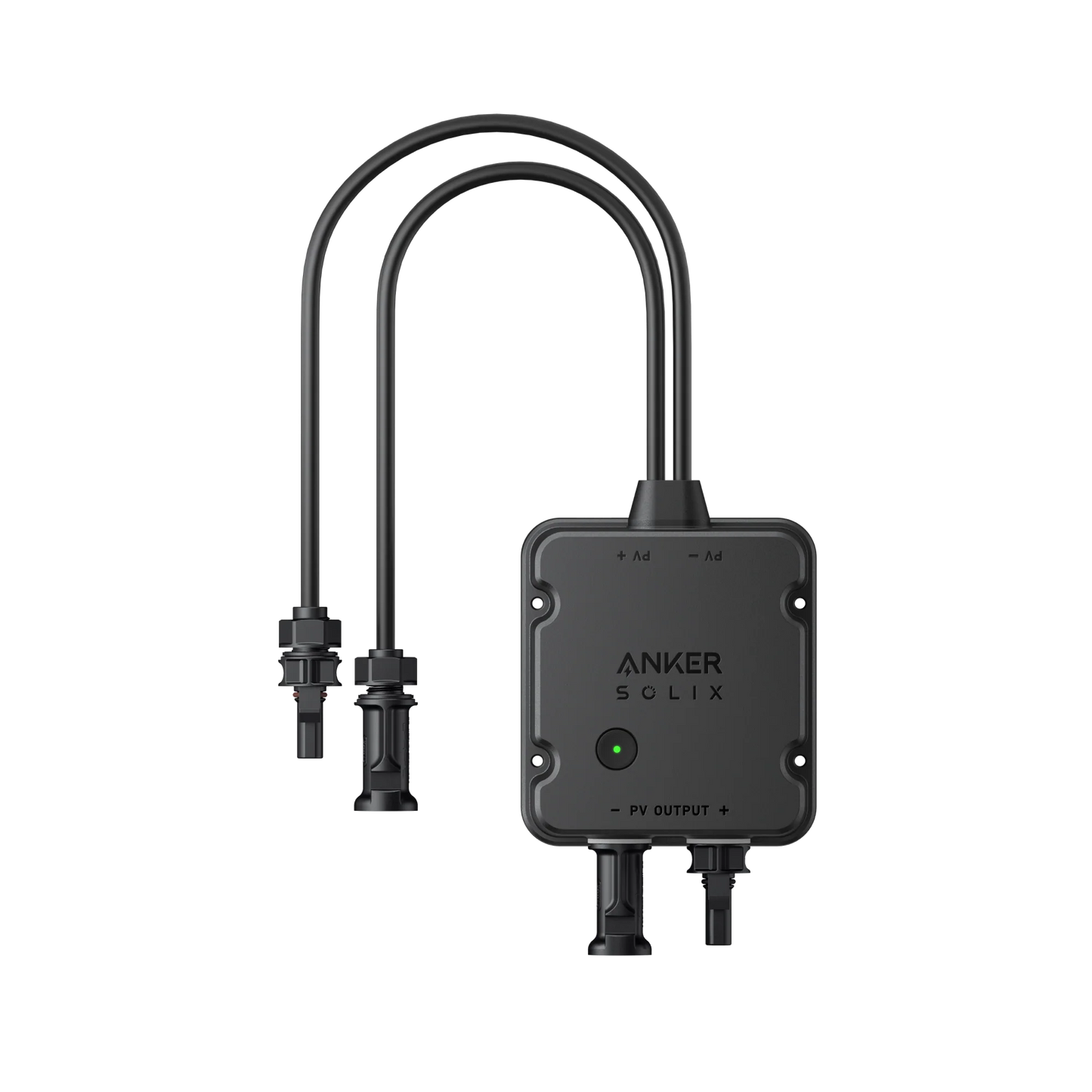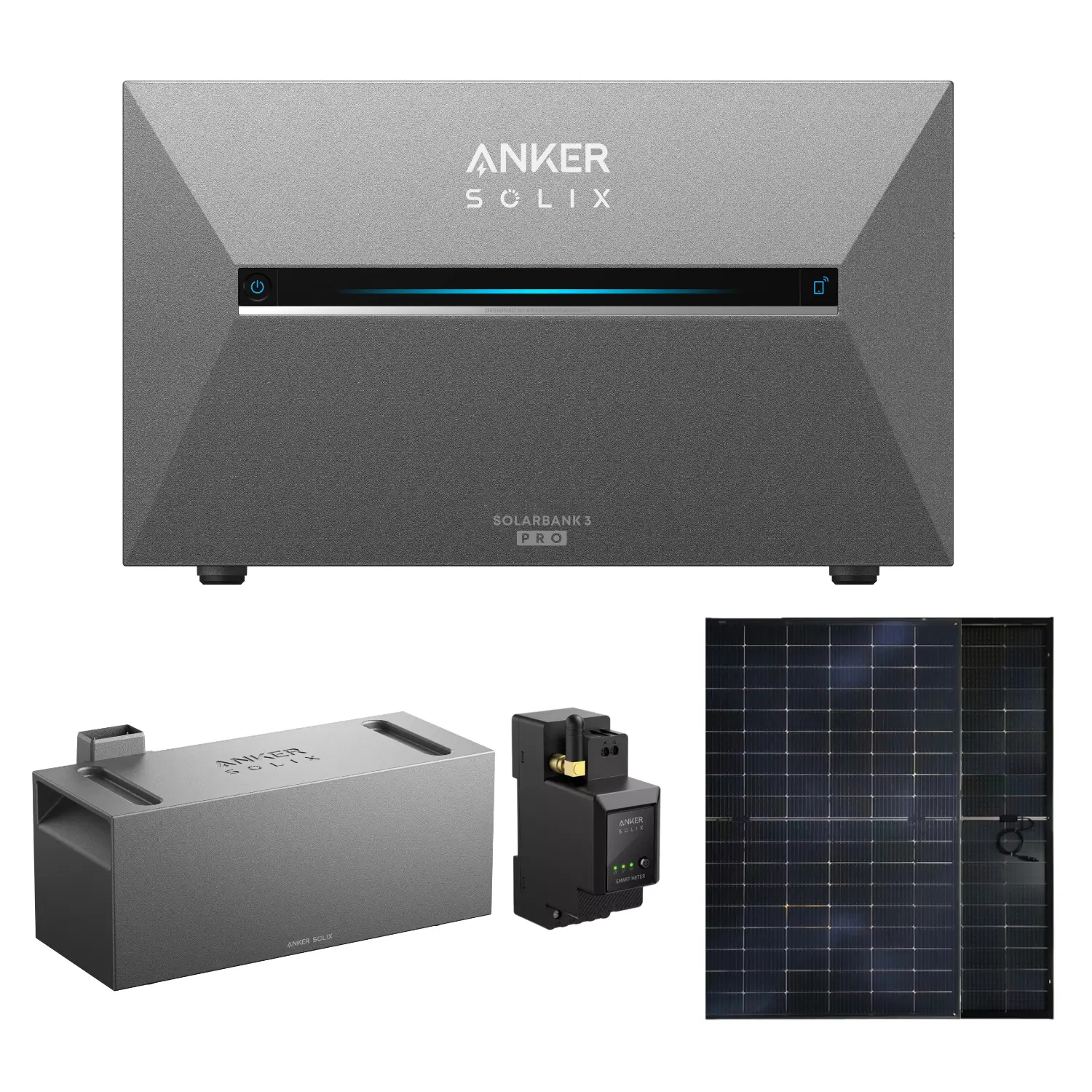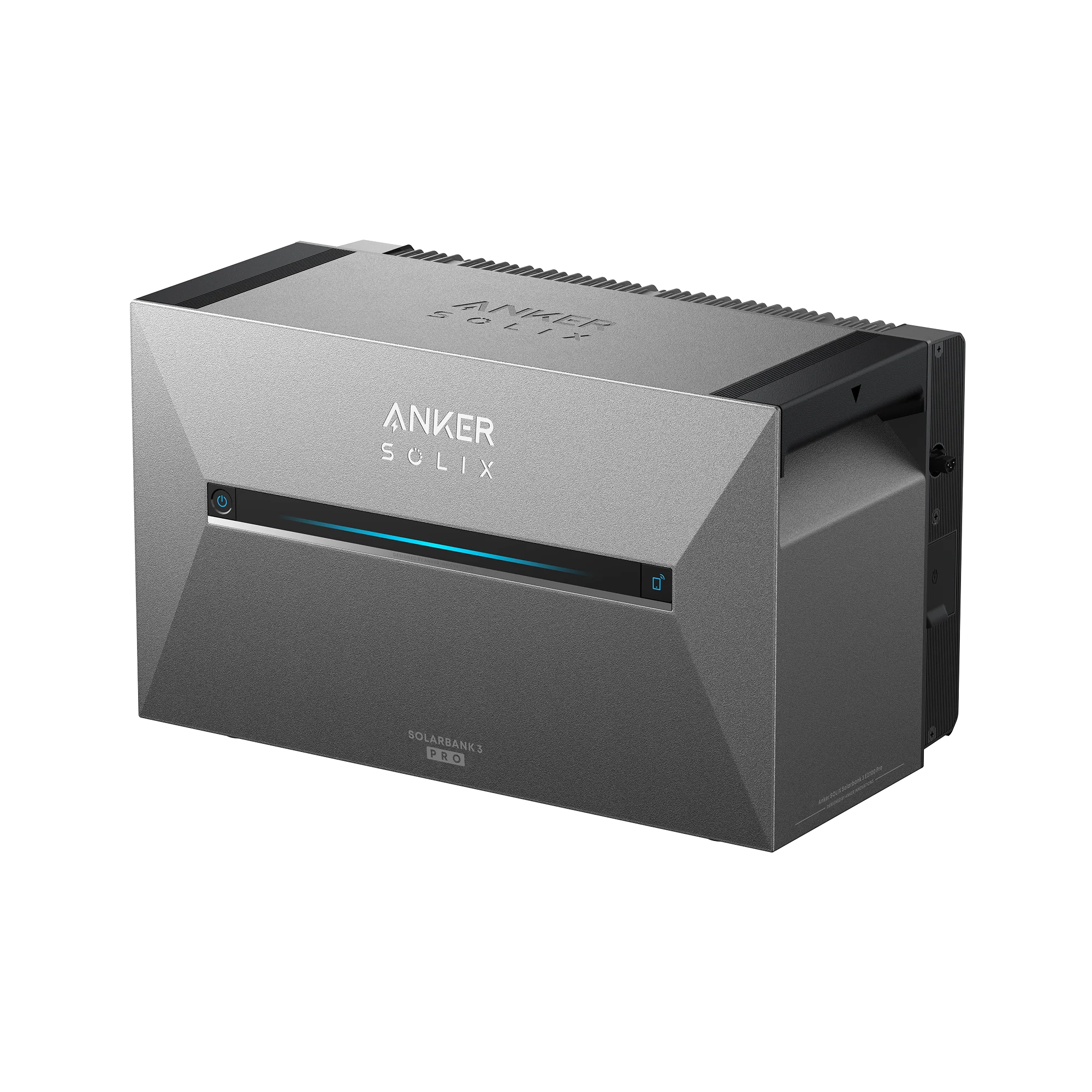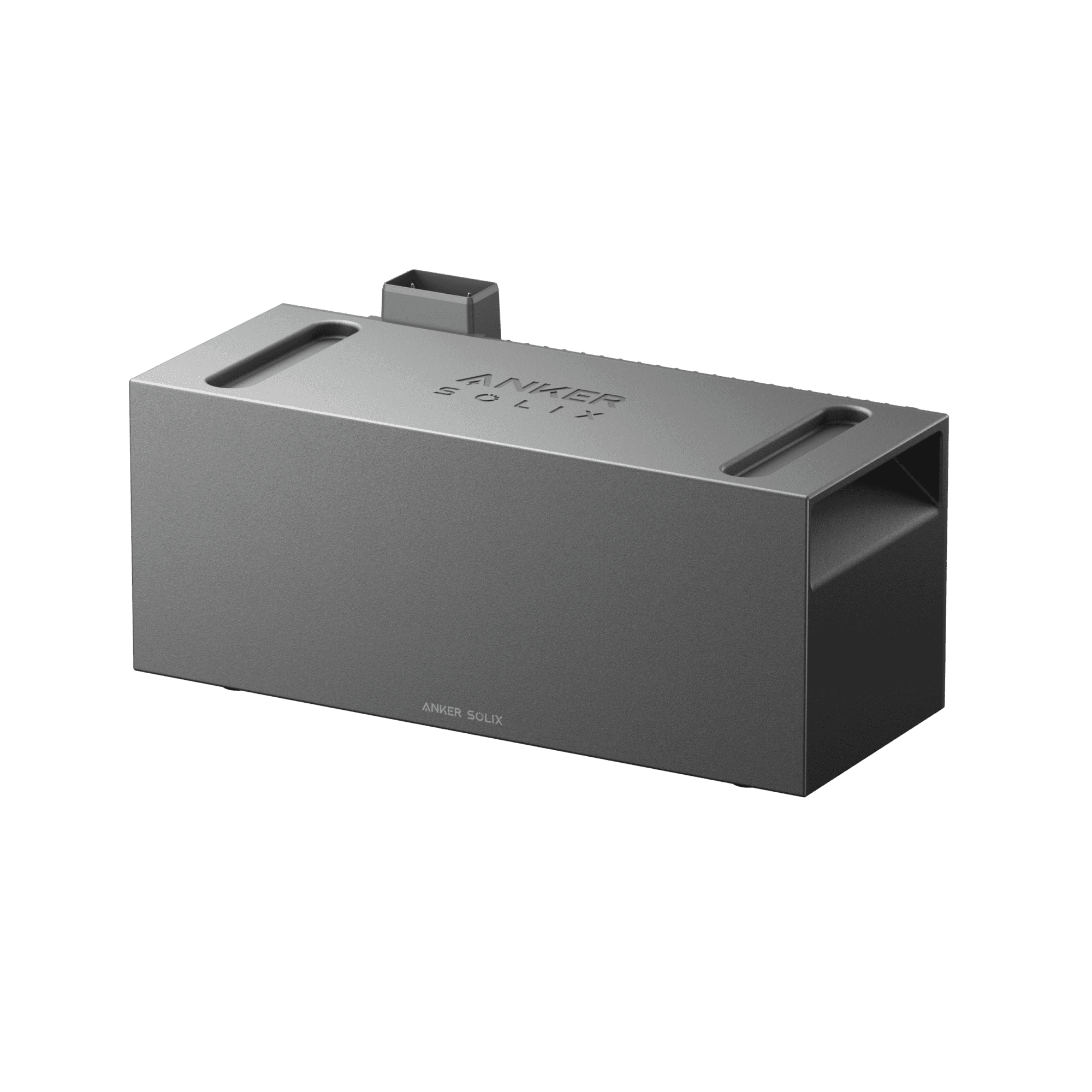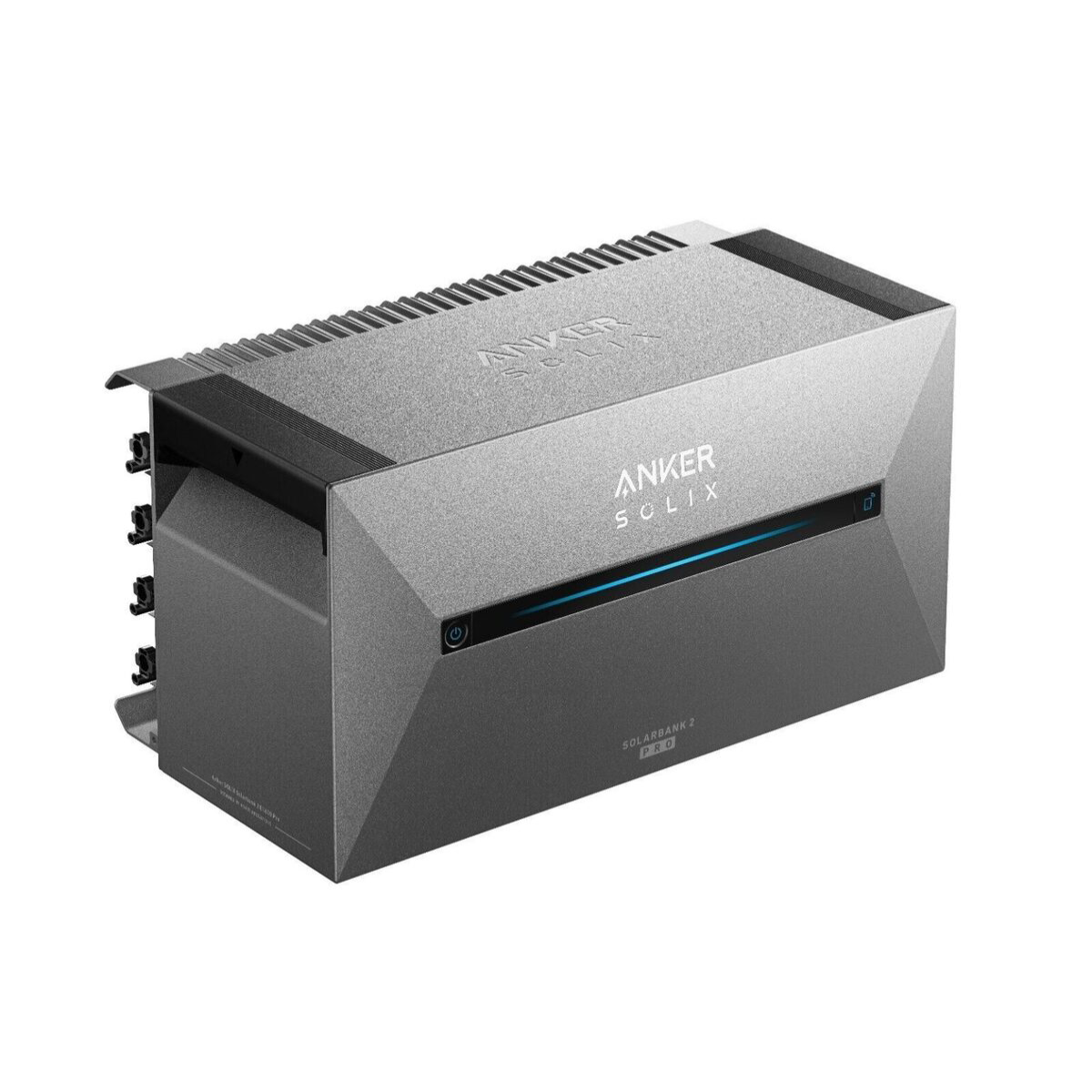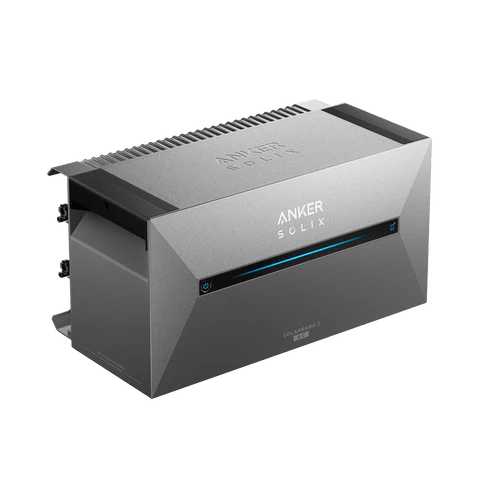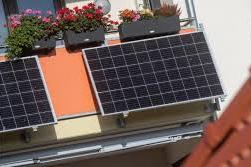Blog & News
Smart Meter – intelligent electricity meter for photovoltaics

Smart meters are an important component of the energy transition. They transmit data directly to the grid operator. This facilitates easier management of grid utilization and customer billing. Learn more about what a smart meter is, how it works, and when it's mandatory here.
What is a smart meter?
A smart meter is a smart meter, which sends and receives data over a communications network. It consists of a digital meter and a communications module, also known as a smart meter gateway. The former measures and records the energy or material flow, while the latter transmits the data between the consumer and the grid operator.
What is the Difference between a smart meter and digital counter?
A digital electricity meter simply displays the current meter reading and a detailed breakdown of consumption over time. It only becomes a smart meter when a communication unit, the smart meter gateway, is added. The smart metering system sends encrypted readings to the grid operator, eliminating the need for manual meter readings.
How does a smart meter work in a PV system?
A smart meter measures, stores, and analyzes energy consumption. It transmits this encrypted data to the grid operator via a smart meter gateway. The grid operator evaluates the data and can thus better manage the utilization of the electricity grid. Consumers can access the data at any time via an app or a customer area.
Is my data safe?
Despite all concerns, smart meters are secure. The Federal Office for Information Security (BSI) thoroughly checks the hardware and software of meter operators for data protection before deployment. Only after certification are the devices approved for installation. Nevertheless, smart meters, like all digital communication infrastructures, are vulnerable to hacker attacks, similar to internet and email traffic.
Is a smart meter mandatory?
Smart meters are mandatory for consumers with annual electricity consumption of between 6,000 and 100,000 kWh. The same applies to electricity-generating systems such as PV systems with a nominal output of over 7 kWp. Furthermore, smart meters are mandatory for households with controllable energy consumption devices such as heat pumps or wall boxes.
Previous metering systems aimed to ensure a fair distribution of energy generation costs. Accuracy is important, but it should also be economically viable for the customer. Future metering systems will focus on energy savings, balancing consumption and generation, and compatibility with the energy transition.
The electricity market will be gradually digitized in the coming years. This is envisaged by the 2016 Act on the Digitalization of the Energy Transition. The new Metering Point Operation Act (MsbG) is the centerpiece of this legislative package. The MsbG regulates the nationwide introduction of intelligent metering systems. This process is referred to as the "smart meter rollout." The goal is to make the electricity grid more intelligent in a decentralized energy world and provide consumers with more precise information about their energy consumption.
When should the changeover take place?
All metering points that meet the mandatory criteria listed above are already equipped with smart meters. Furthermore, metering point operators must install modern metering devices in all new buildings and major renovations.
Starting in 2025, every household can apply for a smart metering system, which must be installed within four months. Meter operators can charge a one-time fee of €30 for this service.
Before installing a modern meter or smart meter system, the meter operator must notify you at least three months in advance. They must also inform you of the option to switch to a different operator. Two weeks before installation, you should receive written notification of the specific installation date, including at least one alternative date.
Where will the smart meter be installed?
The smart meter is installed in the distribution box installed in the house. It is connected to the internet or the mobile network. In households with a photovoltaic system, the smart meter is also connected to the PV system's inverter.
Installing a smart meter can be problematic in existing meter cabinets. There isn't always enough space. Any problems with meter installation should be discussed with the grid operator. In the worst case, the meter cabinet may need to be replaced.
When does a smart meter make sense?
Beyond the mandatory installation, a smart meter combined with an energy management system is also an attractive option if you want to purchase a dynamic electricity tariff. Starting in 2025, electricity providers will be required to offer these tariffs, and a smart meter is required for this. However, this tariff is only worthwhile if you have high electricity consumption.
How much does a smart meter cost?
Smart meter prices are regulated by law and range from €20 to €50 per year. Additional services such as direct marketing or monitoring of consumption and generation systems incur additional costs. Depending on the additional service, these costs range from €10 to €30 per year.
| Household | Gross price cap |
| Electricity consumption up to 10,000 kWh/year | 20 €/year |
| Electricity consumption over 10,000 to 20,000 kWh/year | 50 €/year |
| PV system or with a power of up to 15 kW | 20 €/year |
| PV system or with a power output of over 15 kW to 25 kW | 50 €/year |
| controllable consumption device according to Section 14a EnWG such as a heat pump or charging station for electric cars | 50 €/year |
Who are the best-known manufacturers of smart meters?
The smart meters are provided and installed by the network operator. As a consumer, you have no choice over the manufacturer. However, we list Overview a few on:
- Apator Metrix
- B Meters
- Diehl Metering
- Discovergy
- EAD systems
- Ei Electronics
- Engelmann Sensor
- Friendcom
- Kamstrup
- Landis+Gyr
- Lansen Systems
- Maddalena
- Qundis
- Radiocraft
- Relay
- Sinapsitech
- Solvimus
- Weptech
What are the advantages and disadvantages of smart meters?
Smart meters not only provide a better overview of electricity consumption, eliminating the need to read the meter. They ensure effective grid utilization and advance the energy transition. However, this results in additional costs for consumers and potential gaps in data security.
| Advantages of smart meters | Disadvantages of smart meters |
| better overview of power consumption | additional costs for consumers |
| no meter reading necessary | Data security |
| effective network utilization | |
| Driving forward the energy transition |

